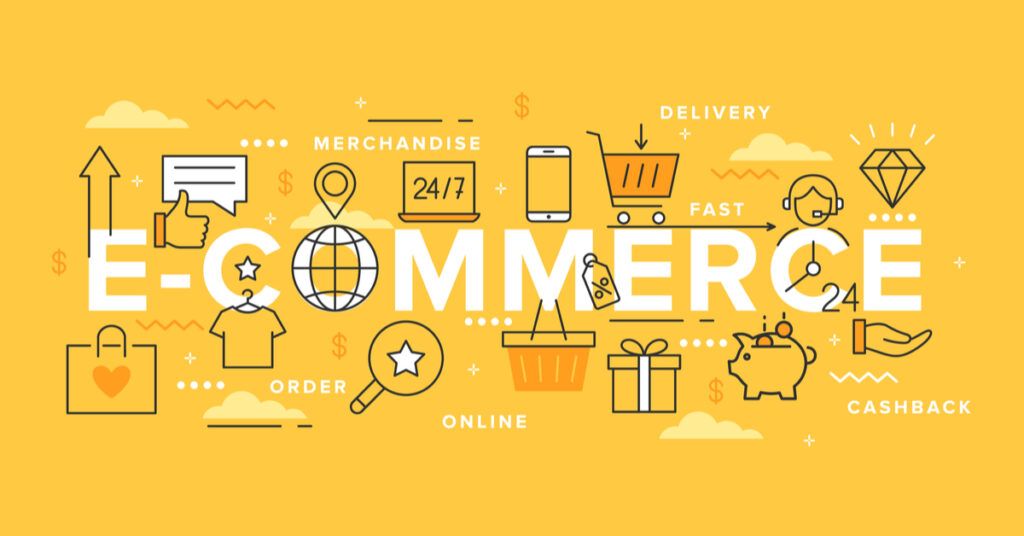
The eCommerce Marketing Trends industry is entering one of its most transformative phases in 2025. With rapid advancements in artificial intelligence, evolving consumer behavior, and the increasing demand for seamless shopping experiences, online businesses must adapt to stay competitive. Shoppers today expect personalization, speed, and convenience, while brands must find innovative ways to reach them in an increasingly crowded digital marketplace.
If you run an online store or plan to launch one, staying updated on the latest eCommerce marketing trends can give you a competitive edge. Below, we’ll explore the top eCommerce marketing trends to follow in 2025 and how they can shape your growth strategy.
1.AI-Powered Personalization in eCommerce Marketing Trends 2025
How Artificial Intelligence Drives Customer Engagement and Conversions
Artificial Intelligence is revolutionizing eCommerce in 2025. AI-driven personalization helps brands deliver product recommendations, dynamic pricing, and tailored offers based on customer behavior.
From personalized email campaigns to smart chatbots, AI ensures each customer enjoys a unique shopping journey, improving conversions and brand loyalty.
2.Voice Commerce and Conversational Shopping in eCommerce Marketing Trends
Optimizing Product Pages for Voice Search in 2025
Smart speakers and voice assistants are changing how people shop online. In 2025, voice commerce trends are gaining momentum as consumers use voice search for reorders and quick purchases.
Brands optimizing product pages for conversational queries will stand out in this growing market.
3.Voice Commerce and Conversational Shopping in eCommerce Marketing Trends
Boosting Brand Sales with Influencers and Live Shopping Events
Social media platforms like Instagram, TikTok, and YouTube have become powerful eCommerce sales channels. Shoppable posts, live-stream shopping, and influencer-driven campaigns dominate social commerce strategies in 2025.
Integrating shoppable social media posts into your marketing strategy can significantly boost brand visibility and sales.
4.Sustainable and Ethical Shopping as an eCommerce Marketing Trend
Why Eco-Friendly Practices Build Customer Trust in 2025
Eco-friendly shopping has moved from being a niche to a mainstream demand. Customers prefer brands that prioritize sustainable eCommerce practices, such as eco-packaging, ethical sourcing, and carbon-neutral delivery.
Highlighting your brand’s green initiatives builds trust and long-term loyalty.Shoppers are more likely to return to brands that reflect their values.
5.Augmented Reality Shopping Experiences in eCommerce Marketing Trends
AR technology is bridging the gap between physical and digital shopping. In 2025, AR shopping experiences let customers virtually try on clothes, preview furniture in their homes, or test beauty products online.Augmented Reality (AR) is bridging the gap between digital and physical shopping. In 2025, AR shopping experiences are giving customers a chance to preview products virtually.
This reduces returns, enhances customer confidence, and increases conversion rates.
How AR Enhances Online Shopping and Reduces Returns
From virtually trying on clothes to visualizing furniture in a living room, AR technology improves buying confidence and reduces return rates, creating a more seamless customer experience.
Subscription Models and Loyalty Programs
Subscription-based eCommerce continues to thrive in 2025. From meal kits to grooming essentials, customers love convenience and curated experiences.
Loyalty programs are also evolving with gamification, offering points, rewards, and exclusive deals that encourage repeat purchases.
Omnichannel Marketing Strategies
Shoppers expect a seamless journey across all platforms—social media, apps, websites, and even physical stores. In 2025, brands that master omnichannel marketing strategy win more customers by ensuring consistency and personalization at every touchpoint.
Data Privacy and Customer Trust
With stricter data regulations in place, customers are more conscious of their digital footprint. Brands that prioritize data privacy in eCommerce by being transparent and secure will earn customer trust.
Leveraging first-party data through surveys, loyalty programs, and feedback tools is essential in 2025.
AI-Generated Content and Automation
Marketing automation tools are reshaping how businesses interact with customers. From abandoned cart reminders to AI-written product descriptions, eCommerce automation tools save time and increase efficiency.
Balancing automation with authentic brand storytelling remains crucial for long-term success.
Conclusion
The future of online shopping in 2025 is customer-centric, technology-driven, and sustainability-focused. By embracing these eCommerce marketing trends—from AI personalization to AR shopping and social commerce—you can stay ahead of competitors while building deeper connections with your customers.
Now is the time to innovate, adapt, and align your strategies with what modern shoppers truly expect.
